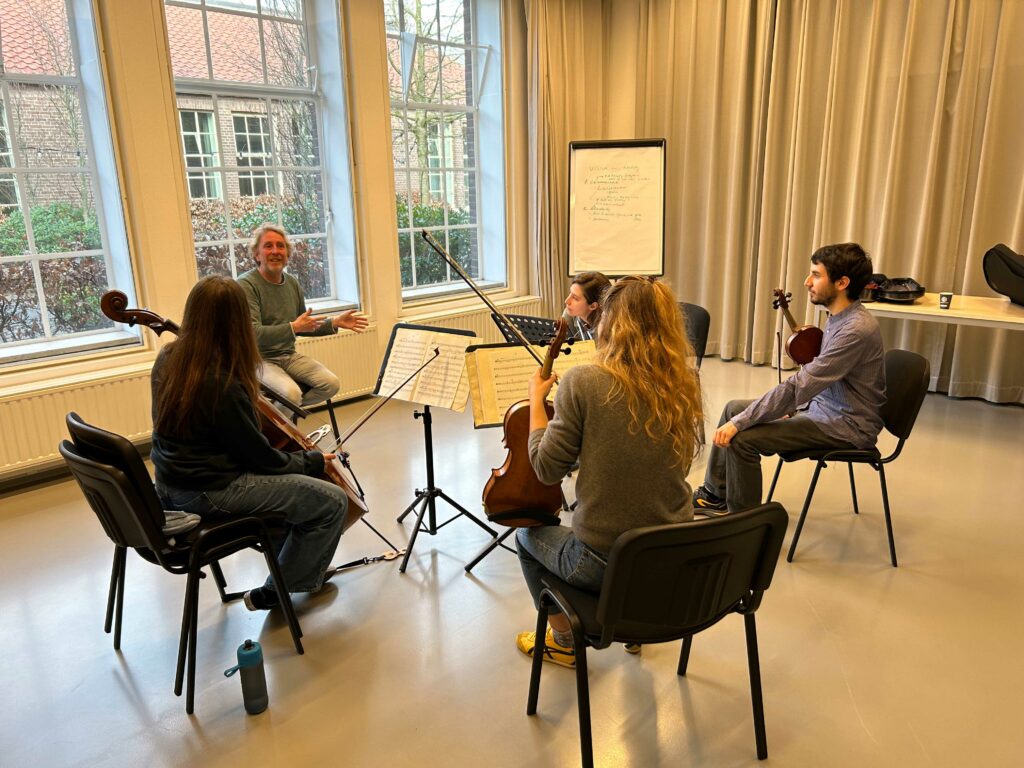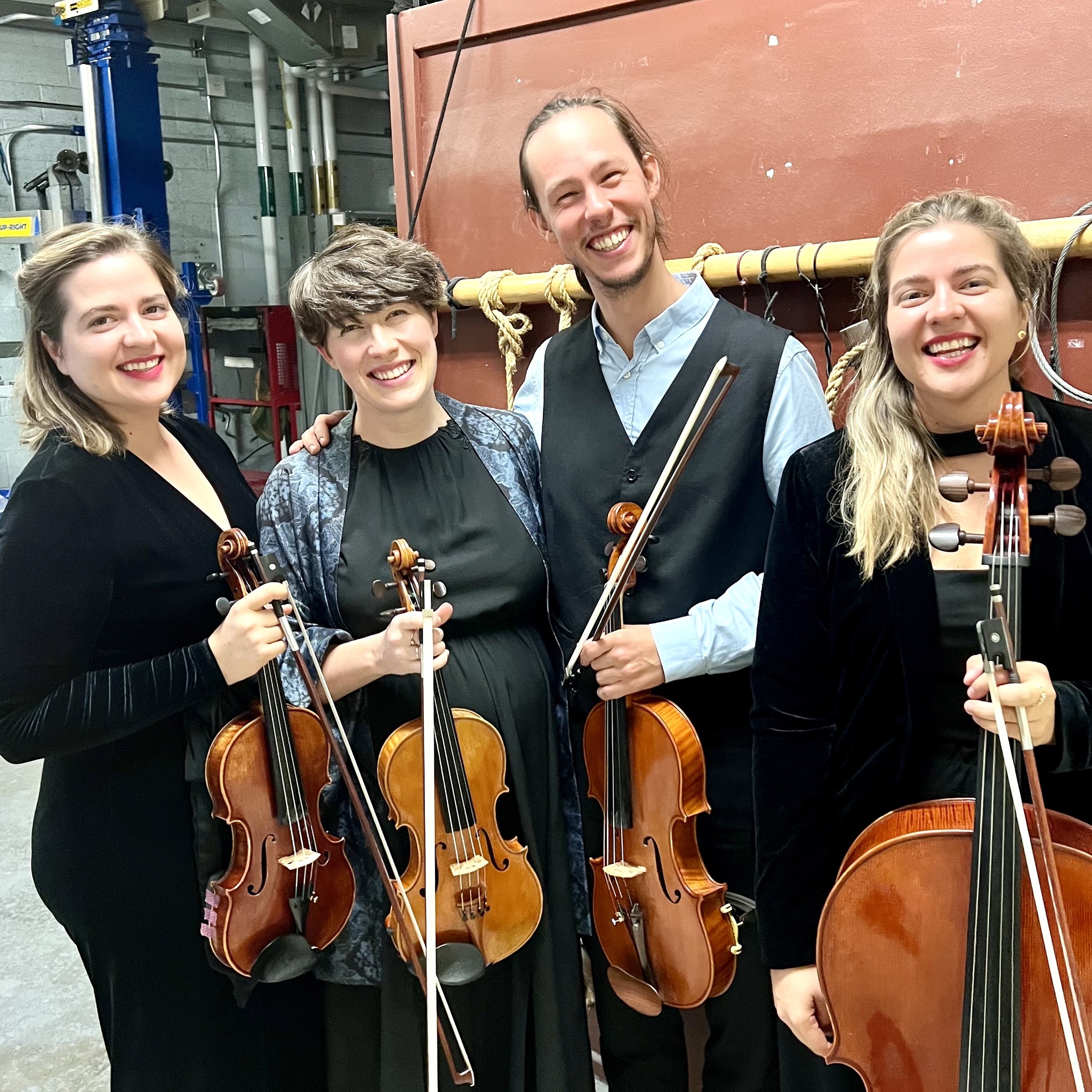Ensemble coaching
A musical ensemble may well be the most tightly knit team there is. It’s your task – often with little preparation time – to deliver a convincing and unified interpretation of a piece of music. Music is the connecting force, which is why many ensembles focus primarily on the repertoire in their collaboration. There is always room to refine interpretation, equality, intonation, and balance.
But what happens when there are differing opinions or perspectives within your ensemble? Or when members have different preferences for how to rehearse? How much should be fixed through agreements, and how much room do you leave for the moment of truth – the concert? Who takes (or claims) the lead?
It can be eye-opening to take a fresh look at your rehearsal methods. This process may open up more space for input from all group members. The chance of disagreement may increase as a result! Step two – working on communication within the group – then becomes essential. But even that’s not the end. Every disagreement will be audible on stage. So will any compromise made reluctantly.

When coaching ensembles, I focus on collaboration – and everything that comes with it.
- How do the members communicate?
- What role patterns are being adopted?
- How is tension or disagreement dealt with?
- And how do you arrive together at a convincing performance?
Unlike in a political debate, where a consensus model is often used and a compromise is considered acceptable, it’s important to realize that on stage, only one interpretation, one vision, one sound, one final result can be heard.
This final step in collaboration is about going beyond your personal viewpoint, making choices, and finding the path toward unity.
How I work
During the coaching sessions, we simulate a rehearsal. The goal is to increase awareness of habits and role patterns in communication. By introducing new communication tools, space can then be created to make different choices that lead to greater equality, respect, and constructive collaboration.
Artistic Development
In my ensemble coaching, I guide the process of artistic development, especially with young professional musicians. I know better than anyone how both individual ambition and group development are essential parts of shaping an ensemble that can distinguish itself in a natural, convincing, and authentic way.
Other important aspects of my coaching for musicians include rehearsal techniques and stage presence.
Rates
An ensemble coaching session usually lasts 2 to 3 hours.
The fee for a 2-hour session is €150.
The fee for a 3-hour session is €200.
These prices exclude travel expenses.
For sessions abroad that involve more travel time, I am happy to make a customized arrangement.
Reviews
Working with Ivar has been one of the most transformative experiences for our quartet. We have had the privilege of collaborating with him on multiple occasions, and each time he brought invaluable insight, clarity, and growth to our ensemble.
His ability to observe and understand the essence of what’s happening within the group is truly remarkable. Often, with just a few words, he is able to points to the heart of a challenge and offer clear, constructive ways to work on it. Whether it is communication, problem solving, or deepening our listening to each other and mutual respect, his guidance has helped us create a space where each member feels heard, supported, and fully engaged.
He equips us not only with all necessary tools but also with a mindset and an atmosphere that balances professionalism with kindness. Thanks to his unique approach, we have developed a healthier, more cohesive ensemble dynamic, where artistic expression thrives on trust, openness, and collaboration.

Karski Quartet (Kaja, Natalia, Diede, Julia)
Ivar supported us in our development as an ensemble through several coaching lessons. We really liked his approach during the lessons, he helped us becoming more aware of our communication and our presence, not only in the way we perform but also in the way we work together.
Ardemus Quartet
Some time ago, Ivar gave an interesting presentation during a master circle for students at the Royal Conservatory. He not only spoke about his rich experience as a performing musician (which of course appealed greatly to the students), but also shared thoughts on topics such as artistic development and artistic identity. Questions like “How do you as an artist relate to the world?” and “What do you stand for?” were addressed.
It is of great importance that we ask these questions to our students and do not only offer them lessons on entrepreneurship and the business side of the profession. Artistic development, research, and professional integration must be connected much more closely.
Ivar showed a beautiful pyramidal model that gives the students a solid framework to reflect on these themes. Thank you very much, Ivar!
Martin Prchal
Vice Principal Royal Conservatoire The Hague
Ivar was a fantastic tutor at the SQBA Residency last week! He is sensitive, respectful, inspiring, open-minded and clear. I am very much looking forward to working with him in the future SQBA Residency weeks.
Yasmin Hilberdink
Artistic director String Quartet Biennale Amsterdam